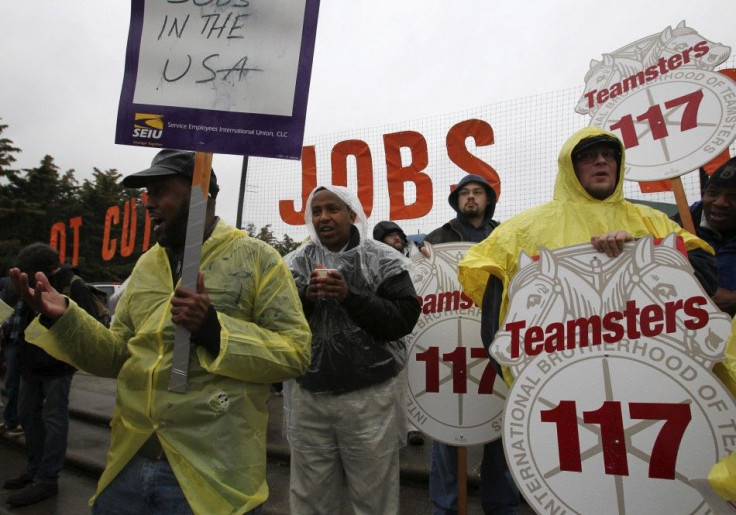N.Y.'s Top Court Paves Way for Unions to Sue Over Wall Street Fraud

Thanks to a Tuesday decision from New York's highest court, unions and other burned investors will now have another avenue to take in fighting Wall Street's alleged fraud and misconduct.
New York's high court, known as the Court of Appeals, has paved the way for investors, including union pension plans, to file private negligence claims against major Wall Street financial institutions for alleged securities-related fraud.
In a unanimous decision, the Court of Appeals rejected an argument from J.P. Morgan Investment Management that New York's Martin Act -- a powerful 90-year-old law enabling the state attorney general broad authority to crack down on financial fraud -- preempts investors from launching their own private common-law claims.
Despite the law's age, the Martin Act has been a tool in the attorney general's arsenal since it was discovered during Eliot Spitzer's tenure at the office. His use of the law earned him his reputation as the Sheriff of Wall Street. Tuesday's ruling, however, still makes the attorney general the only person with the power to actually sue under the Martin Act.
Robert A. Wallner, a securities litigator who filed an amicus brief in the case for several major unions, praised the ruling as a landmark decision that will protect investors.
Union members are investors in pension plans and pension plans are among the largest securities investors in the United States, Wallner, a partner at Milberg LLP, told the International Business Times Wednesday. The ramifications of this decision are quite extraordinary.
New York as Launching Pad for Suits to Fight Securities-Related Fraud
With New York being the world's financial capital, state lawsuits from private institutions such as unions can be launched to recoup money lost from alleged fraud and negligence at the hands of securities professionals. And state suits claiming negligence have a lower bar to clear, unlike suing under federal securities law, which contains more hurdles for investors seeking damages.
Financial institutions have been using the Martin Act, a 90-year-old law significantly updated twice in its life, to block private lawsuits from seeking damages related to alleged financial abuse. That legal argument has been used by federal courts to toss state law claims of a suit stemming from Bernie Madoff's infamous Ponzi scheme.
In the case before the Court of Appeals, Assured Guaranty, which backed a company's investment portfolio with J.P. Morgan, accused the financial giant of heavily investing the portfolio's assets in subprime mortgage-backed securities and failing to advise its client on the level of risk involved.
A group of major unions--New York AFL-CIO, the United Federation of Teachers and the Teamsters are among those that filed the amicus brief--argued for a ruling allowing private lawsuits alleging securities fraud.
The result sought by J.P. Morgan would leave investors without redress in most instances of misconduct, the brief said.
J.P. Morgan tried to knock down Assured's claims of gross negligence and breach of fiduciary duty, arguing that the attorney general has exclusive authority over fraudulent securities and investment practice.
The Martin Act, as it was originally conceived in 1921 with its limited relief did not evince any intent to displace all common-law claims in the securities field, Justice Victoria Graffeo wrote, adding that there is nothing in the legislative history of the law supporting J.P. Morgan's argument.
A J.P. Morgan spokesman told The Associated Press that the firm denies the underlying allegations and will continue to defend ourselves vigorously.
New York Attorney General Eric Schneiderman, during his days as a state senator, had supported legislation giving institutional investors the authority to sue for alleged wrongdoing under the Martin Act.
Schneiderman spokesman Danny Kanner said in a statement that the decision recognizes that private lawsuits are compatible with the office's enforcement power under the Martin Act.
As the court's decision reflects, the purpose of the Martin Act is in no way impaired by private legal claims, Kanner said, since actions by the Attorney General and harmed investors both further the same goal: to fight fraud and deception in the securities marketplace.
© Copyright IBTimes 2024. All rights reserved.





















